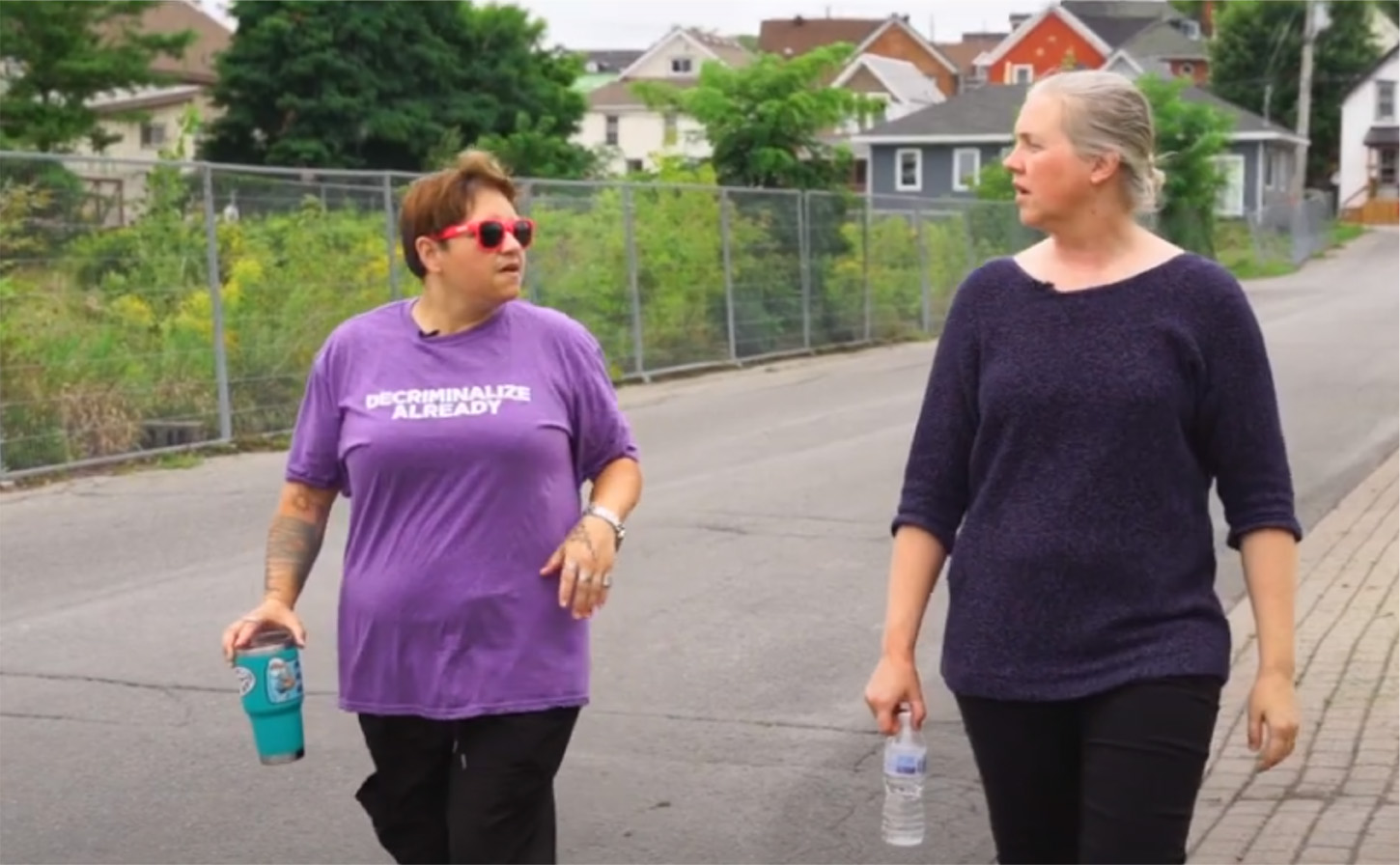Seeing People, Not Problems

Subscribe to Catalyst
Subscribe to get our magazine delivered right to your inbox
Related Articles
Subscribe to Catalyst
Subscribe to get our magazine delivered right to your inbox
Related Articles
How compassionate health care can alter the trajectories of people who use substances.
Jes Besharah doesn’t remember how long they’d been living on the street and using opioids by the time they sought medical care, but they remember being in bad shape.
“I was sick, I was hurt, I was crying, I had abscesses and wounds all over my body. I had many needs that needed to be addressed,” they say. But when the nurse came in and looked Besharah up and down, all she saw was a drug user.
“We didn’t take care of anything at all. She told me she would pray for me, and that was the best she could do.”
For Besharah, it was a crushing response. “It just makes it seem like there’s no point in trying when that’s the answer that you’re met with.”
Unfortunately, Besharah isn’t alone. People who use opioids and other substances often encounter stigmatizing attitudes and discrimination, including from the health-care workers they turn to for care.
The Mental Health Commission of Canada (MHCC) invited Besharah to share their experiences of stigma and its impact in a video called Use Your Voice — Reducing Stigma Toward People Who Use Substances.
“For people who use opioids and other substances, stigma can be a powerful barrier to seeking and receiving quality care,” says Julia Armstrong, manager of MHCC’s mental health and substance use health team. “We created this video (and discussion guide) to start important conversations about stigma in health-care settings — the kind of conversations that lead to better understanding and a higher standard of care for these individuals.”
The video also features the nurse that helped change Besharah’s life — Melinda Billett.
As a primary care nurse practitioner, Billett has had years of experience supporting people who use substances. She has also seen first-hand how small choices can have a powerful ripple effect.
“In health care we can make the choice to treat people with respect,” she says, for example in the notes providers make in a patient’s file. “That’s my voice that someone else is going to read. So, I can choose to say that this person is a drug addict, or I can choose to say this is a person who uses substances.”
In making that small change, Billett is drawing on the power of person-first language, which can help distinguish who someone is from the substances they use or the mental illness they live with.
While both describe other changes that health-care workers — and anyone interacting with people who use substances — can make to help curb stigma, every example comes back to one overarching message: treat individuals who use substances as people, not problems.
Besharah credits the compassion they received from Billett and others for the life they lead today, working as a community harm reduction support navigator and peer support worker. “Part of the reason that I do it is because, when I was on the streets, there were people doing outreach that didn’t judge me, that cared about me, that would go out of their way to make sure that I was still around,” they explain. “That made a huge difference in me wanting to take back control of my life.”
Billett emphasizes that people who use substances have a great deal of inner resilience, and it’s up to health-care providers at every level to recognize it. “If we can tap into that, and be kind to them, and care for them and meet them where they’re at . . . then those things together is what can help change the trajectory of someone’s path.”
Amber St. Louis




